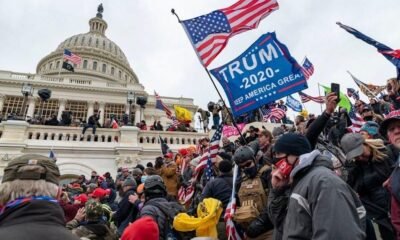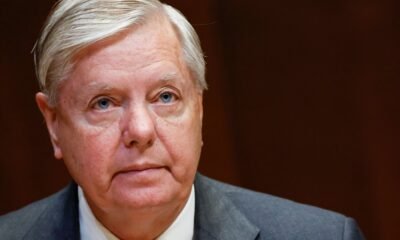crime
School Stands Firm Against Trump Ban on Transgender Athletes: What’s Next?

President Donald Trump has signed an executive order that prohibits transgender athletes from competing on women’s sports teams in alignment with their gender identity. This decision raises significant challenges regarding enforcement and consequences for educational institutions that fail to comply.
The order ties the provision of federal funds to adherence to the ban, which forms a part of Trump’s broader anti-trans agenda. Schools that do not follow this mandate may face withdrawal of federal funding aimed at educational programs.
The administration is directing federal agencies to reinterpret Title IX, a federal civil rights law designed to prevent sex-based discrimination in federally funded educational institutions, in a manner consistent with the executive order.
At the signing ceremony on February 5, Trump declared, “The war on women’s sports is over.” He emphasized that schools relying on taxpayer dollars must comply: “If you let men take over women’s sports teams or invade your locker rooms, you will be investigated for violations of Title IX.”
The executive order prompts the Secretary of Education to implement actions that would protect female athletic opportunities and locker room access, extending beyond just sports teams.
This measure coincides with a trend where several states have enacted laws banning transgender students from participating in sports that match their gender identity. According to the Movement Advancement Project, a majority of states have adopted such laws.
However, many states have yet to pass similar legislation. The Human Rights Campaign has pointed out that the participation of transgender youth in sports has largely not been an issue, with many states effectively balancing fairness and inclusion without incident.
Legal experts have expressed uncertainty about how schools will practically enforce this order. Shiwali Patel, a Title IX expert, remarked that the order is “blatantly discriminatory” and raises numerous questions regarding its scope.
The policy touches various aspects, including educational institutions and international competitions involving transgender women athletes. The order also calls for state attorneys general to devise enforcement mechanisms.
Elana Redfield from the Williams Institute highlighted the order’s sweeping language, implying that it could impact locker rooms and physical education classes across all school levels.
Kelli Rodriguez from Seattle University School of Law anticipates confusion and a period of adjustment as institutions seek clarity on the executive order’s implications.
Rodriguez also noted that the risks of punitive actions for non-compliance are particularly concerning for schools. “Many institutions are anxious about what those actions might look like,” she stated.
Redfield explained that Title IX functions as a spending clause, empowering the federal government to enforce compliance through grants, which can be withheld if schools violate the law.
Legislative challenges are underway, with the House passing a bill in January that seeks to bar trans students from competing in alignment with their gender identity. This measure aims to redefine sex based on reproductive biology and genetics at birth.
In parallel to the executive order, the Education Department announced investigations into multiple institutions, including San Jose State University, the University of Pennsylvania, and the Massachusetts Interscholastic Athletic Association, citing reported Title IX violations. Furthermore, the NCAA has announced updates to its policy, restricting competition in women’s sports to athletes assigned female at birth.

















